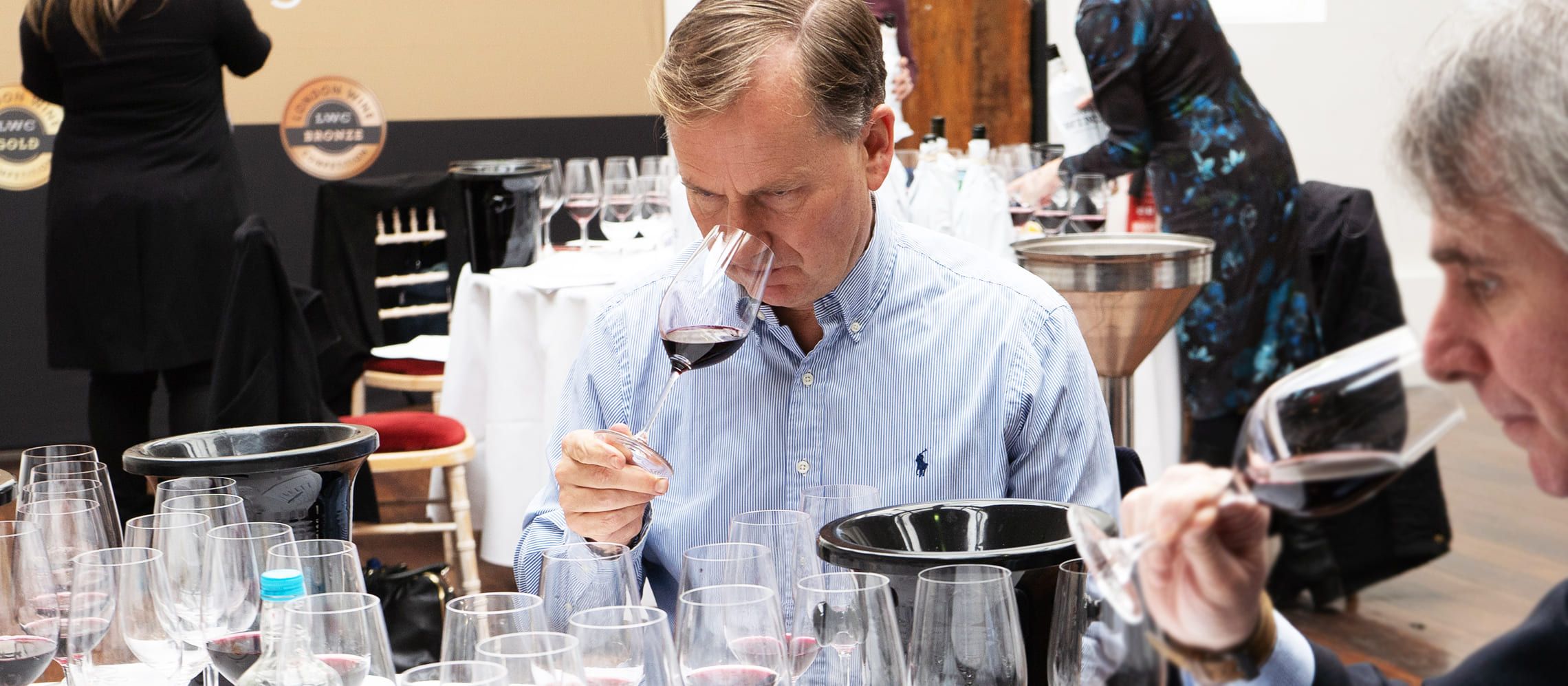Warehouse Closes
07 March 2025
Judging
Date
24 & 25 March 2025
Winners Announcement
22 April 2025
07 March 2025
24 & 25 March 2025
22 April 2025

Simon Field MW is a freelance writer and consultant based in the United Kingdom. He has served as a Wine Buyer at Berry Bros and Rudd for 20 years. The experience and expertise, particularly in the fields of Spanish and French wines, has enabled Simon to serve in three areas:
Consulting – Wineries in the Rhone Valley, at the moment.
Hosting Tasting – Tailored to specific needs and budgets.
Writing – Demonstration of flair, insights, and originality.

Simon Field MW at 2019 London Wine Competition
Simon Field MW is a part of 2020 London Wine Competition judging team. He will be judging wines at this event on March 24, 2020, in London with his fellow wine judges on the team. Below is a small interview session with the LWC judge Simon Field MW.
I graduated in modern languages from Oxford University but then went on to gain a professional qualification in London, as a Chartered Accountant, working thereafter mainly in Paris so that I could use the language skills. I eventually became more interested in the wine lists in restaurants in central Paris than Bank Balance Sheets, so made the switch about 25 years ago and of course, have not regretted it at all!
CLICK HERE TO CHECK OUT THE CURRENT TRENDS IN THE UK WINE SCENE.
An ability to think quickly, to be responsive to a variety of commercial situations and to be able to advise both on a personal level to those coming up through the wine trade and on a corporate level, so that establishments showing off wine lists and ranges can be reassured that their list matches exactly their aspirations and that each wine included is the ‘best in class’ from the area in question.
Whether or not it ties in with climate change etc, I see more and more interest in lighter red styles, Beaujolais and Loire in particular. Of course, both styles have a long and honourable historical backdrop and the bistros of Paris have never really deserted a refreshing Chinon, for example. Now the currency has appreciated and is spread more widely and there is increasing stylistic aspiration to imitate such wines, achieved mainly by site selection, perhaps at higher altitude.
The wine world is far broader and more complex than it was sixty-odd years ago; the role of the Master of Wine is to reflect such breadth and diversity, whilst recognising stylistic and qualitative differences, and to proselytise as appropriate in order to ensure that the message is spread with equanimity and honesty. In this sense, the role has changed very little!
The old mnemonic acronym, BLIC (Balance Length Intensity and Concentration) is a good place to start; beyond that aromatic integrity and structure which captures an essential personality to the wine which achieves the near-impossible; being individualistic yet reflecting provenance, and being interesting without in any way losing a natural appeal.
CLICK HERE TO KNOW WHAT UK WINE MERCHANTS ARE LOOKING FOR WHEN THEY SELECT A NEW WINE BRAND.
At the moment I am a freelancer and consultant, so most challenging is to achieve a balance between the different elements; academic, consulting, judging, writing and presenting. Often the diary gets clogged up and then is quiet; managing the workload so that everything gets optimal attention is therefore key. In terms of the writing it is the constant quest to say something in a manner that is both accessible but also interesting; and, up to a point challenging, which may often involve viewing things from different angles.
The move to rosé has been interesting, lighter coloured rosé in particular, also the lighter reds as mentioned above. Hand in hand with this is the interest in organic and biodynamic wines and the move away from too much oak, over-extraction and wines that are made cynically, that is to say to wine prizes…. The consumer has far more awareness these days and is more and more sceptical about ‘made’ wines which fail to give much pleasure after a glass and a half!
The Bobal grape in Spain is very interesting and with the whites the Albillo. In terms of France, the Loire is back in fashion, so look out for the re-emergence of Chinon and St Nicolas de Bourgueil. In the Rhone Valley St Joseph seems to get better and better, and the further south I continue to be amazed by the diversity and the quality from such regions as Les Terrasses du Larzac and Pic Saint-Loup.
Last night I tried a 100% Petit Verdot, an IGP from the Languedoc, perfectly oaked to complement the naturally high acid/tannin template. I have been enjoying some Chinons from 2016 and 2015 and was recently bowled over by the superb Reserva Especial Rioja from Vina Ardanza.
Warehouse Closes For Samples On March 7, 2025. Ship Your Samples Now. View Shipping Instructions Here.